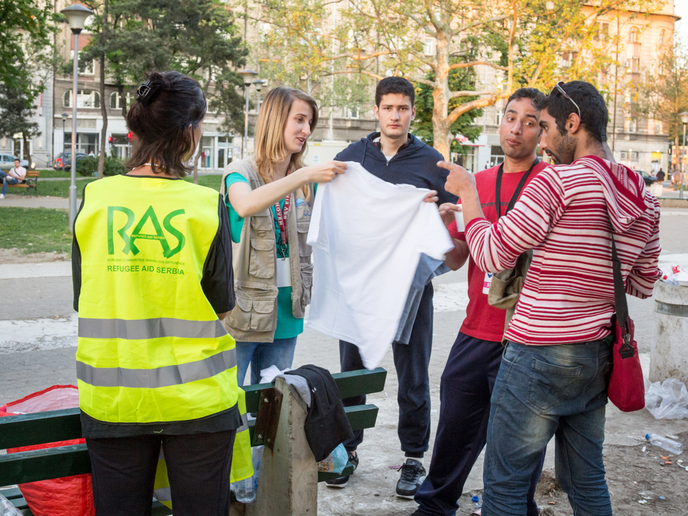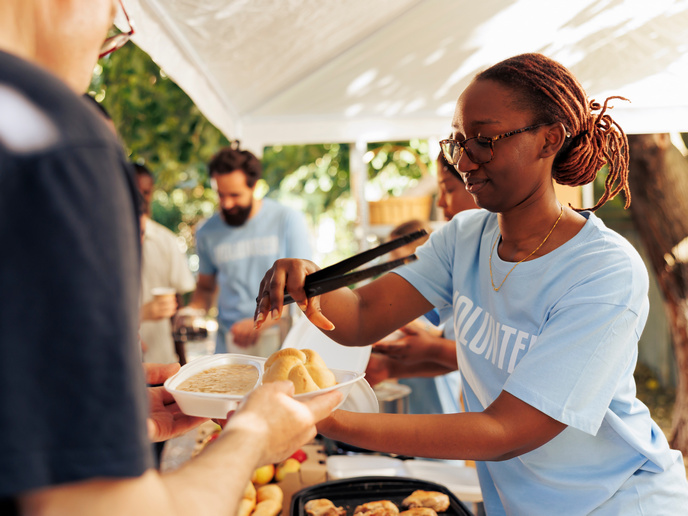Why migration solidarity groups could herald a new politics
The ‘Balkan route’ is a migration path towards central and northern Europe. It gained attention in 2015 when the number of people using it rose significantly due in part to the conflict in Syria, but also to the increased policing of the Mediterranean Sea, thus increasing the dangers of reaching Europe from Libya or Tunisia. While European states deployed measures to control the mobility of people along the Balkan route, grassroots groups and individuals mobilised in solidarity with the migrants. The EU-supported MigSol project observed and assessed how displaced people could undertake political actions that served their goals and values within these solidarity spaces. MigSol showed that while these sites cater for the daily needs of migrants (providing food and shelter for example), they also crucially offer a useful starting point for rethinking inclusive politics across Europe.
Alternative political spaces
Displaced people are often seen as outside the political realm. As non-citizens, they tend to be denied agency (the right to make key decisions about their own life), and they are frequently regarded with either suspicion or humanitarian compassion. “These issues are particularly pressing at a time when ultra-nationalism and the far right are on the rise all over Europe. MigSol proposed ways to rethink the meanings and future of politics and community,” explains Marie Skłodowska-Curie Fellow Celine Cantat. The Fellow undertook ethnographic fieldwork based on participant observation and interviews with a range of solidarity groups and spaces, such as occupied buildings and alternative accommodation sites, in three places: Greece, Hungary and Serbia. MigSol found that practices and communities of ‘migration solidarity’ allow displaced people, along with those in solidarity, to meet their daily needs by organising themselves in non-hierarchical ways based on participation. “For example, in some city centres, several hundred people lived together, using rotas to organise activities such as cooking, running classes or clinics and social events. This was in sharp contrast with the isolated and depressing experiences usually found in official reception facilities,” says Cantat. These spaces also allowed communities to be forged beyond the statuses that usually set people apart (such as asylum seekers, refugees, residents and citizens); for members to get involved in political actions such as protests and campaigns for their rights and those of others.
Inclusion from below
MigSol evidenced existing ways in which migrants are already meaningfully included in society through local solidarity politics. These represent concrete alternatives to policies that isolate both symbolically (through discourses which posit migrants as ‘outsiders’ to be integrated) and spatially (by hosting people in camps and reception centres). The project proposed that these alternative political practices should be supported as spaces offering answers to what some conceive as the political and democratic crisis that Europe is currently witnessing. “The first step would be that the EU and Member States stop the criminalisation of migrants and their supporters, which we documented during the project,” says Cantat. “This means, firstly, halting the encampment, detention and deportation of non-citizen residents and, secondly, providing legitimacy and support for solidarity activities.” Cantat intends to continue researching these solidarity spaces to further explore their potential: “Against a backdrop of reduced state welfare support, more people are relying on self-organised structures for basic services like healthcare and education.”
Keywords
MigSol, migrant, refugees, solidarity, Balkan, Mediterranean, Syria, displaced people, citizens, humanitarian, asylum seeker, resident







